Xiaomi Auto partnered with a third-party company to export electric cars
Xiaomi Auto has suddenly reached an agreement with Hyperion Leasing (Tianjin) to promote the export of electric cars to core markets. Previously, Xiaomi claimed it wouldn’t officially export cars for some years, focusing on the domestic market. It seems that the company’s plans have changed.
Hyperion Leasing (Tianjin) is a state-owned China National Machinery Industry (Sinomach) subsidiary. This company was founded in 1997 as an enterprise directly managed by the Chinese government. Sinomach currently has 160,000 employees, 40 subsidiaries, and over 200 overseas service agencies. The group has a market presence in over 170 countries and regions.
Xiaomi and Sinomach cooperation
On February 10, Sinomach shared a press release stating that its subsidiary Hyperion Leasing (Tianjin) reached an agreement with Xiaomi Auto on the joint promotion of international cooperation in major global markets. It wasn’t clarified what markets are considered “major”. However, it is clear that Hyperion Leasing and Xiaomi aim to export electric vehicles overseas.
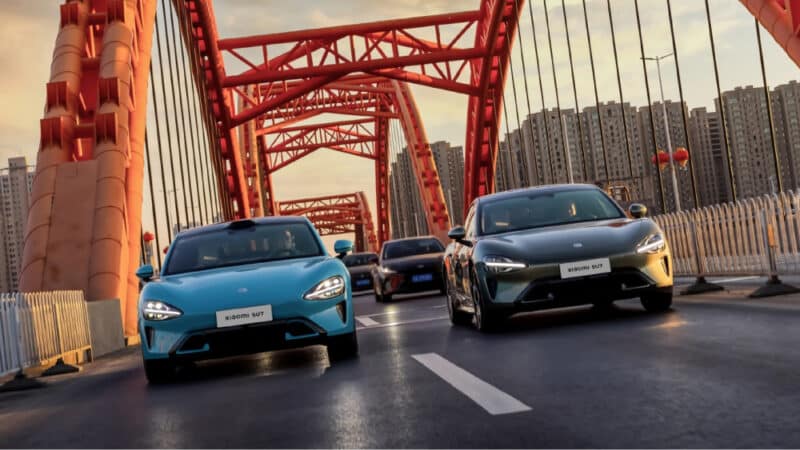
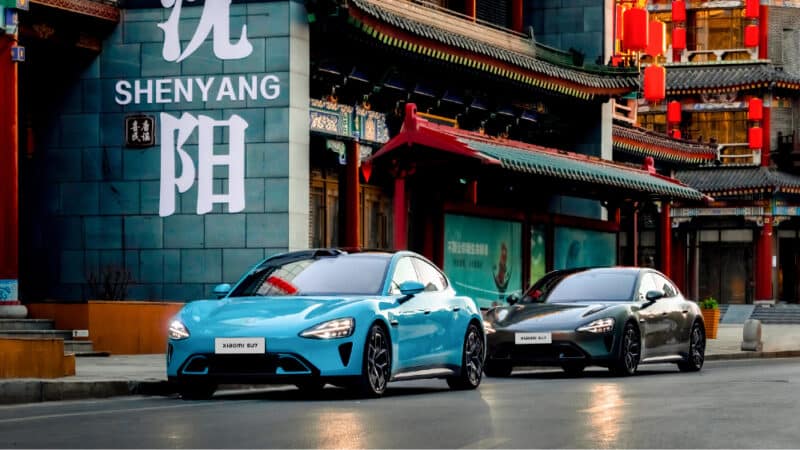
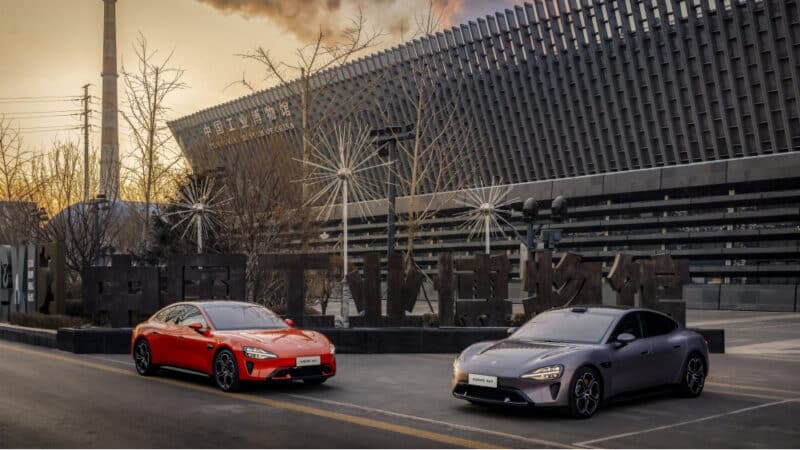
Xiaomi Auto currently sells a single model in China, which is a highly successful SU7 sedan. It was launched on March 28, 2024. Its cumulative sales volume reached 139,487 units last year, according to China EV DataTracker. The waiting time for a Xiaomi SU7 in China lies between 22 – 31 weeks (5 – 8 months) after placing an order. The demand for this model exceeds the current production capacity. However, Xiaomi is constructing the F2 plant. Once finished, it will ease the pressure from delivery time. The second-phase factory will also assemble Xiaomi’s second model, the YU7 electric crossover.
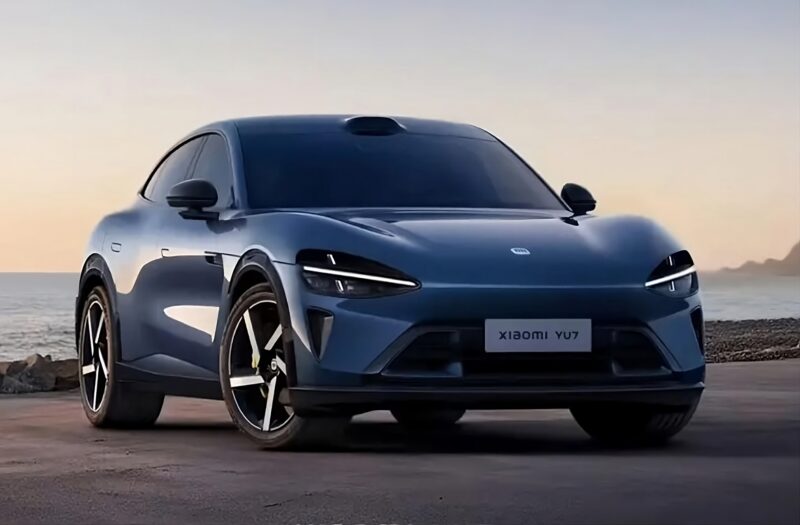
It is worth noting that previously Xiaomi aimed to launch overseas sales before 2030. So, the automaker didn’t plan to officially export cars for at least a couple of years. It seems that the company changed its strategy to increase profitability. CarNewsChina reported that Xiaomi’s loss per car was slightly under 38,000 yuan (5,250 USD) in Q3 2024. However, Xiaomi can get profit from each car sold overseas. For example, BYD earns four times more from selling a car in Europe than in China (even with protective subsidies applied).
The cooperation model between Xiaomi and Hyperion Leasing (Tianjin) is unknown. It seems that the Sinomach subsidiary will act as an exporter of Xiaomi cars, buying vehicles from the factory and selling them through overseas channels. It was also said that Hyperion Leasing will take care of maintenance and technical support of Xiaomi vehicles sold abroad.
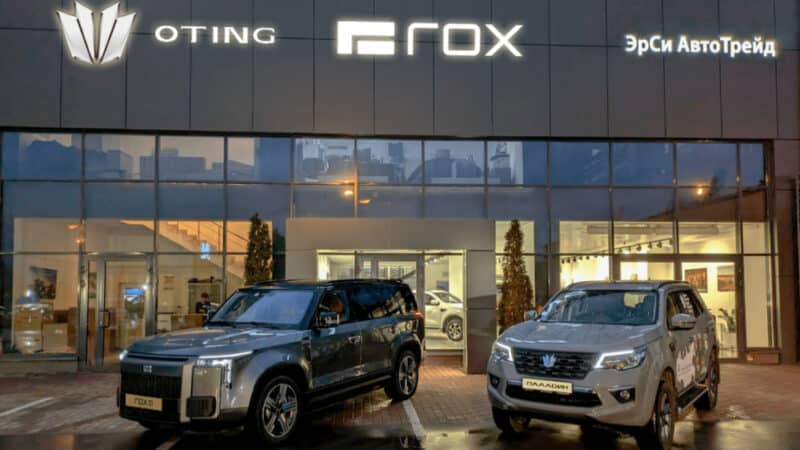
We will highlight here that Sinomach is active in the Russian market in passenger car sales. It currently acts as a distributor of two car brands there. The first brand is called Oting. Its model line comprises rebadged Nissan models from the Chinese Zhengzhou Nissan plant. The second brand is the Rox Motor (Polestones). Sinomach has around 50 dealerships in Russia. Sinomach’s subsidiary Hyperion Leasing (Tianjin) will likely introduce Xiaomi cars to the Russian market. However, it wasn’t officially confirmed.
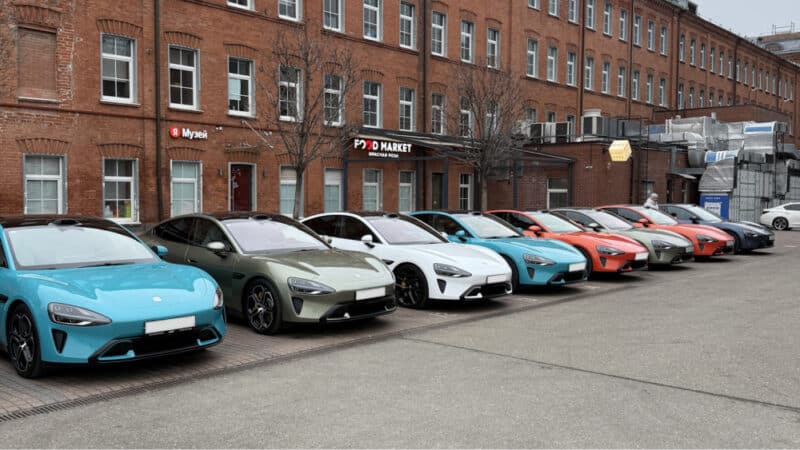
Xiaomi vehicles are currently going overseas via parallel channels. Russia accounted for 50% of those sales last year, while the Middle East took another 30%. However, the sales volume of parallel Xiaomi SU7 sedans isn’t high. Only 179 units of this model were sold in Russia last year. This means that the global unofficial sales of the Xiaomi SU7 were at around 400 cars.
More about Xiaomi SU7
The Xiaomi SU7 is a sizeable sedan with dimensions of 4997/1963/1455 mm and a wheelbase of 3000 mm. The Standard and Pro variants of the SU7 are rear-wheel drive using a single 220 kW (295 hp) electric motor. The Standard uses a 73.6 kWh battery, which gives the car a range of up to 700 km. Pro versions gain a larger 94.3 kWh battery, which provides a range of up to 830 km.
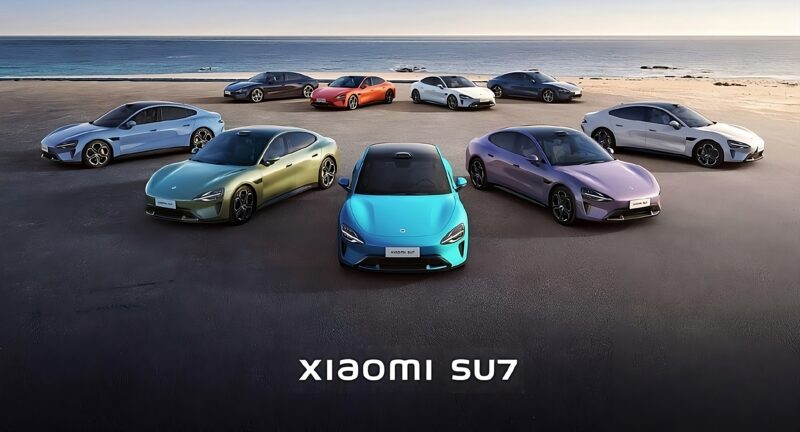
The Xiaomi SU7 Max boasts a 275 kW (369 hp) motor in the rear axle paired with a 220 kW motor in the front. The system’s combined power output reaches 495 kW (664 hp). It adopts a 101 kWh battery pack for 800 km of range. The Xiaomi SU7 has a price range of 215,900 – 299,900 yuan (21,600 – 41,150 USD). It is available in 10 body colors, including the recently added pink shade called Magenta.

